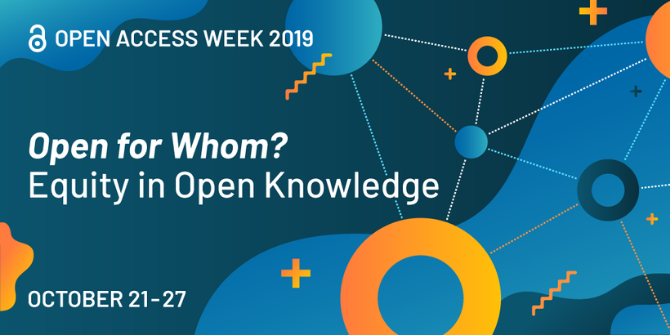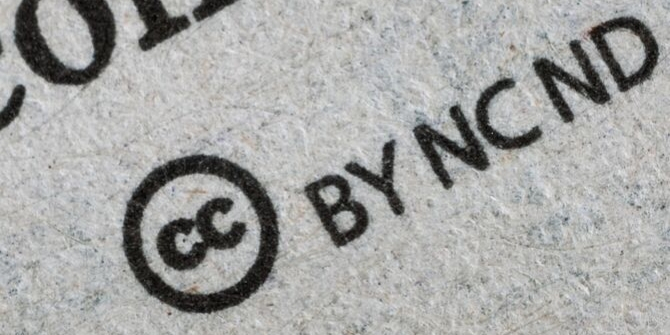Open science has become a catch all term to describe the many different ways in which digital networked communication technologies have opened and begun to transform research and scholarship across different disciplines, even those outside of the sciences. Whilst this term has been useful, Marcel Knöchelmann argues that for the humanities to successfully adopt digital technologies, rather than have them imposed upon them, they need to develop an independent open humanities discourse.
There is no one open access. If at all, there is open access in the sciences and there is open access in the humanities, they are conceptually and fundamentally different. The social sciences present a liminal case, exhibiting aspects of both open science and open humanities. However, while there is a dedicated discourse on all forms of openness in the sciences—open science—there is no such dedicated discourse in the humanities (and consequently the humanistic social sciences). The humanities thus lack a single voice, one that unifies disciplines, renders the cluster of scholarship coherent, and gives the humanities the ability to counter excessive research management and practices that are detrimental to their scholarship. This lack of a positive vision for open humanities, ultimately leaves them unable to present an alternative to the status quo and thus vulnerable to top-down reforms.
A social rather than a technological challenge
More so than in the sciences, authorship and publishing practices in the humanities are intricately connected to the individual author and her scholarship. A discourse on potentially new modes of practice in the humanities needs to attend to the unique social basis of work in the humanities, as well as the different nature of humanities scholarship. Open science either doesn’t do so, or only does so in a way driven by science and technology.
In the end, technology doesn’t happen. It is shaped by those who use it, or force others to do so. Funders or publishers cannot be blamed for progressive or capitalist developments, if scholars can’t even collectively define how their own scholarship should be produced and communicated.
In the sciences, fundamental research processes are digital, opening up these processes via the network of the internet is an obvious next step. Take for instance, data. In scientific disciplines, data has a natural habitat in digital form, it is gathered, stored, and analysed digitally. The work of scientists centres around digital structures. This is not the case in the humanities, but data still exists in the humanities: primary resource texts, archives, and representations of art, are essential forms of data. Yet, much of this data is paywalled, or its sharing prohibited by intellectual property rights. As a consequence, does this mean that humanities scholars may never be “true” endorsers of open science, since they don’t share their data? Further, funders and institutional research managers have incentives to drive openness, as a means to enhance the integrity of their research and their reputations. Being an open science (and open access) advocate, either as an organisation or an individual, provides opportunities to distinguish themselves in a highly competitive field.
This is not so clearly the case for the humanities, as the logics of open science tools often poorly align with humanities scholarship. To take one example, the focus on the acceleration and streamlining of academic publication prominent in open science is of significantly less concern to the humanities. Whilst the scientific paradigm prioritises the production of ever more new findings, this is not the case in the humanities, where progress can be based on difference as much as novelty. Authorship priority also has a different meaning here, since no two publications use the same arguments to answer the same question and arrive at the same conclusion. Consequently, the humanities need to have their own dedicated discourse that addresses these points of difference and answers questions such as:
- What role can preprinting, liberal licensing, open review and data sharing practices have so that they make useful connections for humanities scholarship and society?
- Can openness in the humanities balance demands for international excellence with maintaining a focus on national and regional subjects? And can this be achieved without creating disconnected national and regional forms of scholarship?
- With funding in the humanities scarce, why are collaborative funding models that avoid excessive BPCs and APCs only slowly being taken up or even discussed?
- What open humanities practices thrive on collaboration and inclusiveness, instead of self-promotion?
- Why are open access policies for the humanities often merely a by-product, or reaction to, science policies?
Taken as a whole, these questions invite us to reassess issues of power in scholarly communication. How can open forms of scholarly communication be organised that move away from a long established and unnecessary focus on the brand value of particular journals and the selection criteria of their editors?
The Humanities and Digitality
As opposed to the sciences, scholars in the humanities have largely treated digital tools as external and supplemental to their research and scholarship practices. The ultimate expression of this compartmentalization of the digital, was the creation of an entire field, the digital humanities, which is rooted in digital technology and the methods it enables. Whilst important in their own right, these methods more often than not present parallel approaches that do not interact with core practices or epistemologies in the humanities.
The ability of the digital humanities to contribute to debates on openness has as a consequence been fragmented. What is desperately needed is a dedicated discourse that brings together and articulates the interests of this cluster scholarship across different technological and social dimensions of humanities scholarship and recognises what Marcus Beiner identifies as key features of humanities scholarship: perspectivity (the emphasis on relational and subjective understanding), verbality (the importance of the qualitative argument) and historicity (the historical context of the discourse).
Developing a comprehensive approach to open humanities
A prime example of where such a discourse would be beneficial is the question of preprints and open peer review. Whereas these practices have gained ground in scientific disciplines and function independently there, they pose significant problems for the humanities, if one is applied without the other. For instance, if a publisher implemented preprints, but worked on a closed peer review process, future readers are posed with the confusing scenario that they can read both the manuscript and the final version, but have no idea why something was changed and who was involved in the process. In disciplines that emphasise the importance of editorial history and individual authorship, scholars cannot neglect that there are different versions published and, when discussing such a publication, always have to refer to both published versions in a way such as: author A claims that X and unknown reviewer R adds XY. This may sound trivial. But neglecting such a discursive process would question where the line is drawn between necessary and neglectable editorial historicity. An open humanities discourse would allow such issues to be addressed comprehensively, rather than in a piecemeal fashion.
In the end, technology doesn’t happen. It is shaped by those who use it, or force others to do so. Funders or publishers cannot be blamed for progressive or capitalist developments, if scholars can’t even collectively define how their own scholarship should be produced and communicated. Failing to do this is to invite being forced into potentially unsuitable processes and paradigms. Scholars in the humanities need to formulate what unifies them and provide points of reference about what is best for them from the perspective of their scholarship. Open humanities could be a starting point to achieve this.
This post draws on the author’s article, Open Science in the Humanities, or: Open Humanities?, published in Publications.
Note: This article gives the views of the author, and not the position of the LSE Impact Blog, nor of the London School of Economics. Please review our comments policy if you have any concerns on posting a comment below.
Featured Image Credit adapted from Jon Eric Marababol, via Unsplash.









2 Comments